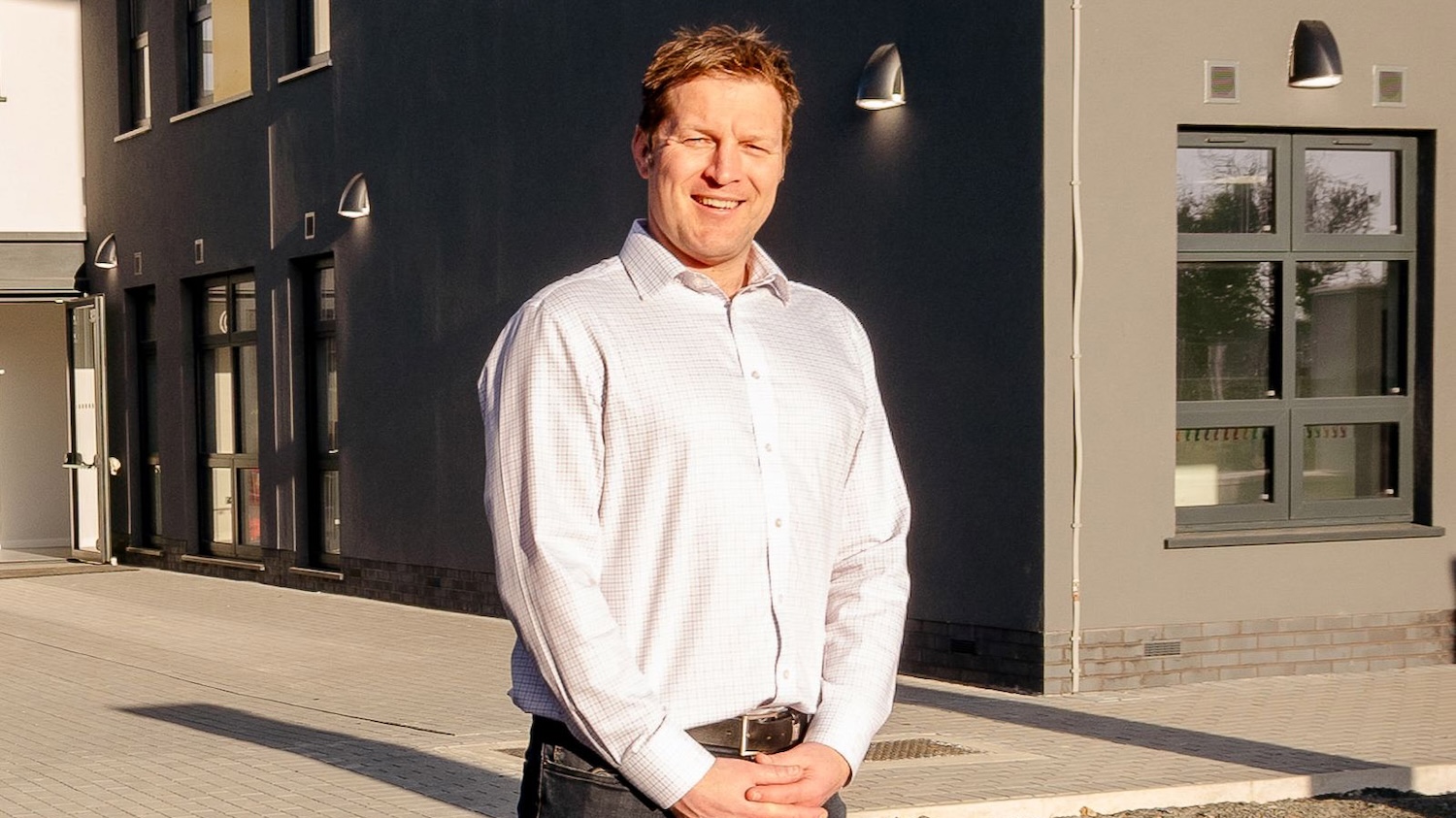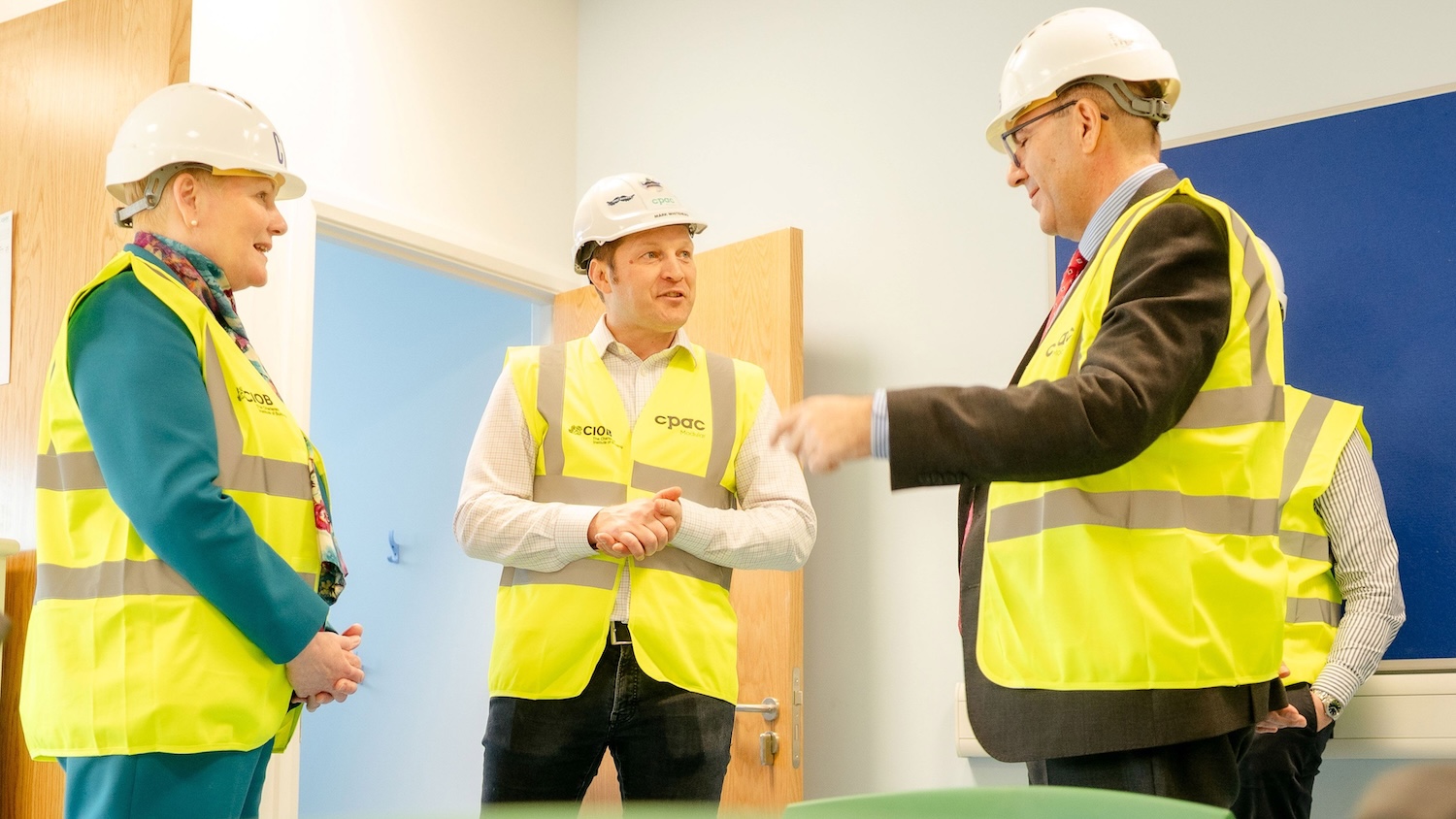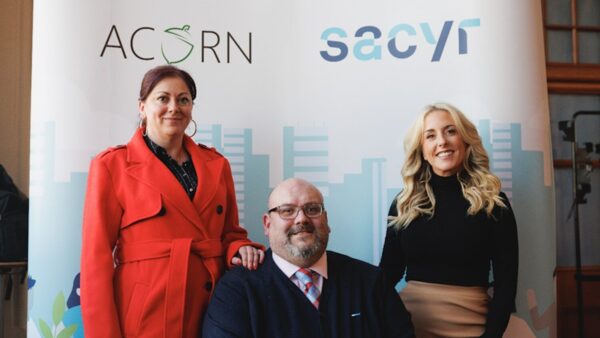
Mark Whitehead, construction director at CPAC Modular, tells CIOB People how turbocharging the modular construction sector in Ireland could help to attract the next generation of talent
You joined CPAC almost four years ago. Why did you decide to join the business?
CPAC has transitioned from predominately temporary buildings to a focus on more permanent solutions. I joined the company to help get them established as a main contractor in Ireland.
The business has come a long way in the past few years. The changes are huge, especially as everyone across the team has really bought into it.
A big part of my role is making sure that we are developing our workforce as we progress.
If someone is a general operative, for example, and they want to be a site manager or project manager, we give them a pathway to get there.
That approach has also allowed us to retain and attract great people. There are lots of opportunities to grow within the business, so they don’t have to go elsewhere.
How do you support your people with their professional development?
Some people lack a bit of confidence when it comes to taking that next step on the career ladder, or they might not see that they have the potential to do it.
We want to draw out that potential and show them that they can achieve anything if they are willing to put the work in.
Some people lack a bit of confidence when it comes to taking that next step on the career ladder, or they might not see that they have the potential to do it. We want to draw out that potential
One area I am particularly passionate about is working with the Chartered Institute of Building (CIOB) to help more of our people get chartered.
Achieving that recognised qualification is so important, both in terms of how others view your professionalism and how it can boost your confidence in your own professionalism.
Tell us about your own experience through the Fellowship process.
The process is really focused on the knowledge I have gained in the industry over the past 20 years or so. It’s not based on whether or not I have a degree or NVQ, it’s about my experience in the industry.
I have worked in the industry for a long time and have had some great experiences across a range of projects, but achieving Fellowship will really be the icing on the cake for me.
Getting that recognition is so important, which is why I’m so passionate about supporting some of our team to do it.
We have some incredible project managers who have been with the company for 20-30 years. It would be great for them to get chartership and have that recognition of their skills and knowledge.
The best part of the experience has been reflecting on some of the things we have achieved at CPAC. It has reminded me to celebrate achievements a bit more.
I think we’re all guilty of that sometimes – something amazing happens, but you’re so busy and focused on the next thing, you don’t take the time to celebrate.
There has been so much change at CPAC over the past few years. It would be impossible to celebrate absolutely everything, but we can and should reflect on our key achievements more.
Celebrating successes – is that something the wider industry should do more of?
Yes, absolutely. When something goes wrong, people immediately ask: “Who is accountable for this?” You want to find the person and address the issue.
However, when something goes right, it’s very rare to get the same reaction. Instead of just focusing on the negatives, we, as an industry, need to celebrate the victories.
For us [at CPAC], we’re delivering desperately needed schools, including special education spaces.
Every project we deliver is cause for celebration. It’s important to reflect on how each project will have a beneficial impact on the local community – and we’re part of that.
What is the biggest change you’ve seen in construction over the course of your career?
Modern methods of construction (MMC) is one of the biggest changes in the industry. However, it can be frustrating that adoption is still a big challenge in Ireland.
We have just delivered the first permanent modular school in Ireland. It’s a great project in Dublin and showcases the very best of MMC.
Caroline Gumble, CIOB’s CEO, recently visited the site and it was fantastic to tell her about what we’ve learned during the project.

There is, of course, still a place for traditional methods of construction, but modular is another viable option that just isn’t be used enough yet.
It has been adopted really well in the UK and Europe but, so far, it has been a lot slower in Ireland.
I have seen tons of change across the industry, but that final adoption piece is the big barrier we’re facing. A lot of people think modular is the future. I think that’s wrong – modular is now. The solution is there. We just need to get on and use it.
What are the main skills-related challenges and opportunities facing MMC?
I am involved with Skillnet MMC Accelerate, which is an online platform focused on supporting MMC in Ireland.
It sets out a pathway for people to pursue careers in the sector, highlighting the progress you can make and the apprenticeships or training needed.
It is a really exciting time to join the sector. The beauty of modular construction is that it is really easy to train people and provide practical experience at a production facility.
A trainee general operative can quickly gain a solid understanding of each stage of production and how the process works as a whole.
We have two apprentices who joined us in September as part of our apprenticeship programme. They will get the full overview of everything, from concept, through to design, production, site work and then handover. It’s a great opportunity to gain practical, hands-on experience.
You can go from an apprenticeship all the way up to being a director, but we need to make it clear how you do it. We need to give people a roadmap
It’s all about how we promote construction jobs to people. If you’re leaving school or college now, do you want to go into construction? How attractive is the industry to you?
Unfortunately, there is still a mindset that construction is not an exciting or lucrative career choice.
This is where the apprenticeship system is so important. If you can encourage more young people to take up apprenticeships, in five years’ time they could be a project manager earning good money, managing a team of people, with opportunities for progression.
You can go from an apprenticeship all the way up to being a director, but we need to make it clear how you do it. We need to give people a roadmap to get there and show them how achievable it is.
We need to get people excited about construction again. There are so many fantastic opportunities. We’re doing lots of amazing stuff with AI and BIM, for example.
But we need to share that with the next generation so that they know these opportunities are available to them in the construction industry.









